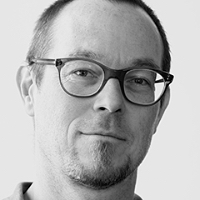DeepSec 2025 Talk: Quantum Safe Cryptography: The Future of Cyber(un)security – Lukas Mairhofer
There is a cybersecurity threat looming that will change everything. Conveniently enough, it can be ignored until it is way too late to act: once available, Cryptographically Relevant Quantum Computers (CRQC) will effortlessly break asymmetric cryptographic algorithms such as RSA and ECC on which we build our current security infrastructure.
In my talk, I will first discuss what makes Quantum Computers uniquely powerful, translating complex physical concepts into practical implications for cybersecurity. We will explore how Shor’s algorithm undermines current cryptographic assumptions and why digital signatures and public key infrastructures are particularly vulnerable. Attendees will gain an overview of the timeline for the development of CRQC, the principal actors in the field and why CRQC endangers our privacy already today.
The session will then turn to mitigation strategies, exploring two promising paths: Quantum Key Distribution (QKD) and Post-Quantum Cryptography (PQC). PQC aims at establishing new and hopefully quantum-safe algorithms for creating asymmetric keys, which are currently standardized by NIST. QKD on the other hand provides an unbreakable means for sharing symmetric keys whose security is based on the laws of quantum physics.
We asked Lukas a few more questions about his talk.
Please tell us the top 5 facts about your talk.
- Once powerful enough, Quantum Computers will break all current asymmetric encryption methods such as RSA and ECC.
- Experts expect that such „cryptographyically relevant“ Quantum Computers will be available in 5 to 10 years. However, the implementation of counter measures is at the same time scale.
- „Store now Decrypt later“-Attacks make Quantum Computers a threat already today
- Quantum Key Distribution mitigates this risks by sharing symmetric keys and has been demonstrated over long distances as well as in urban networks
- Quantum Key Distribution is information theoretically secure: it cannot be broken – even with unlimited computational power
How did you come up with it? Was there something like an initial spark that set your mind on creating this talk?
I come from quantum physics, a field somewhat disconnected from cybersecurity. In teaching quantum information to informatics students and talking to political activists as well as CISOs in the critical infrastructure, I was stunned by an almost complete lack of awareness of the threat posed by Quantum Computers.
Why do you think this is an important topic?
The advent of cryptographically relevant Quantum Computers overturns our complete cybersecurity infrastructure. We need to start thinking about countermeasures now, as their implementation will take years.
Is there something you want everybody to know – some good advice for
our readers maybe?
Whenever you exchange data via the internet, be aware that this data is most likely stored by potential adversaries such as NSAs. While it is encrypted and thus protected now, in a few years Quantum Computers will be able to turn that data into plain text. For each piece of data, consider whether that might harm you.
A prediction for the future – what do you think will be the next innovations or future downfalls when it comes to your field of expertise / the topic of your talk in particular?
Cryptographically relevant Quantum computers will lead to a paradigm shift in cybersecurity. Large-scale attacks could potentially cause the collapse of entire sections of critical infrastructure and public administrations. The transition to quantum-safe communication will take years and create a high demand for specialists in this field. While some organisations have already started implementing countermeasures, many will undergo a hard transition with severe disruptions of business.
 Lukas Mairhofer has complemented his PhD in experimental quantum physics with a PhD in the philosophy of science and technology. He is an award-winning lecturer on quantum information and currently leads the QURIOS Quantum Technologies Academy at qtlabs
Lukas Mairhofer has complemented his PhD in experimental quantum physics with a PhD in the philosophy of science and technology. He is an award-winning lecturer on quantum information and currently leads the QURIOS Quantum Technologies Academy at qtlabs
